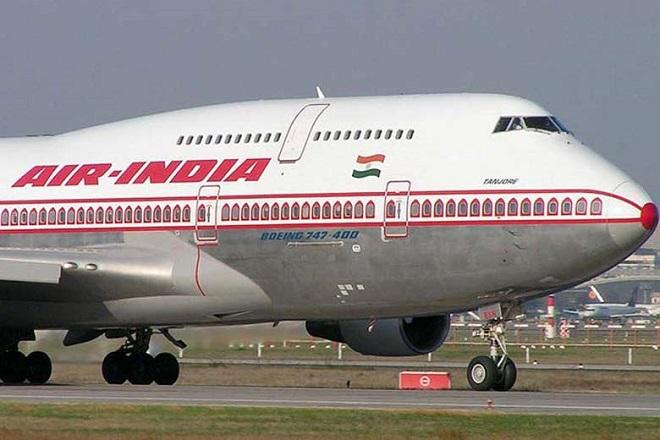Air India Sale: Will Real Estate, Other Assets Make It More Lucrative For Private Buyers?

Prime Minister Narendra Modi recently reasserted the BJP-led NDA government’s commitment and “sincerity” towards selling off India’s public-sector enterprises and assets to private parties — if a reassurance was needed, given that the government has already sold off national assets worth Rs 1.25 lakh crore in three and a half years of its rule.
“As for Air India, the government has done what it had to with utmost sincerity. You have to differentiate between the lack of response to one sale offer and a policy decision. At the cabinet level, we have cleared the sale of not only Air India but several other (loss-making) public sector units – this itself is a historical in many ways; that they are yet to be sold is the result of timing and process,” said Modi.
Never mind the fact that the adjective “loss-making” inserted within parentheses is not true of many of the entities on the divestment agenda, but Modi goes on to acknowledge the massive criticism flung in the government’s way against selling Air India (AI) short.
“We don’t want to make a sale where we will be accused of selling something for X amount when we could have got more. But the policy decisions for strategic sales have already been taken,” he continued.
The fact that Modi even mentioned the possibility of selling AI short is an indicator of how valuable AI still is in financial terms. If he is serious, then he must consider not selling it at all. Although it’s more likely that AI will be divested in the literal sense of the word — stripped bare of all of its extremely lucrative assets — and dismembered to boot, as many private players have been demanding that the Central Public Sector Undertaking (CPSU) be sold in parts.
Last month, Union civil aviation minister Suresh Prabhu announced that the government was reviewing the plan for the strategic disinvestment of India’s debt-ridden ‘national carrier’ — after no bidder came forward to submit even the initial Expression of Interest (EoI) by the extended deadline of 31 May.
Since then, there have been reports of AI seeking a short-term loan of Rs 1,000 crore, for a tenure of one year, to meet its working capital requirements — because the government froze its equity infusion after the airline was put on sale.
Now there has been talk of selling off its assets, and there have been reports of a plan to sell off AI’s iconic building in Mumbai that formerly housed its corporate headquarters — before it was leased out to earn annual revenue of Rs 100 crore — to the country’s largest container cargo terminal Jawaharlal Nehru Port Trust in order to raise funds (and Union transport minister Nitin Gadkari touchingly opined that he’d be “really sad” if a private party bought the building instead). There are reports that AI is going to hand over its priceless artwork collection to the Ministry of Culture, as the upkeep is costly.
But it is clear the government is sticking to its plan to sell off AI, so then what are the ways that the government can make it more lucrative for private buyers?
The obvious answer is by writing off the huge Rs 52,000-crore debt, of which the new owner would have had to bear only 50% as per the earlier terms of sale — a move that would be criminal and unpardonable as far as the public exchequer is concerned, so the government cannot immediately resort to that.
And another way to jack up the value of the sale offer is to include the real estate holdings under AI’s possessions. The original offer excluded its prime land holdings and real estate. The non-core real estate assets and other businesses, not integral to the core airline business of AI, were to be hived off into a Special Purpose Vehicle (SPV) to be owned by the Government of India. But let’s do a quick backgrounder first.
What Came Before
On 28 March, the Modi government announced sale of 76% equity stake in Air India (AI) held by the Government of India, along with its 100% equity stake in AI’s subsidiary Air India Express Limited as well as the 50% equity stake in joint venture AISATS.
There are a slew of reasons why the airline did not attract private companies, who are playing hardball to negotiate ever more lucrative terms to suit their profit-maximising ways.
But the primary deterrent is obviously AI’s debt burden of more than Rs 52,000 crore, of which the government had vowed to bear 50%. The private buyer would be left with debt of around Rs 24,600 crore, along with current liabilities of more than Rs 8,800 crore. This means a total burden of debt and liabilities of more than 33,300 crore will remain with the new owners. Prospective bidders have also cited the 24% remaining share of the government in AI — a demand that the government already seemed to have agreed to.
The story of how AI — once the undisputed market leader — was deliberately brought to its knees in order to make way for private airline companies is long and shameful.
The debt was foisted on to the profitable airline mainly through the unnecessary purchase of an excessive number of aircrafts under civil aviation minister Praful Patel during the Congress-led UPA-I regime. Then there was the giving away of lucrative routes to private players and the merger of AI with its domestic counterpart Indian Airlines (both of which were market leaders at the time).
Do Not Kill The Golden Goose
The airline has been making rising operational profits for the past three years and has never defaulted in the loan repayment — although it has been suffering net losses, mainly on account of the huge debt.
In fact, despite the studied and sustained attempts at its destruction, AI continues to have a market share of around 17% in the overseas services from India, which is the highest among Indian carriers.
It also holds highly lucrative slots at prime airports and traffic rights internationally (which were part of the original deal). Besides a fleet of 115 aircrafts, AI has more than 6,200 slots for domestic and international flights. In fact, AI has eight pairs of slots at London’s Heathrow Airport. It has several slots across the United States and in airports of European cities including Frankfurt, Rome, Milan, Vienna, Stockholm, etc. These slots are among the most lucrative ones of all, likely to be worth billions of rupees.
As for its non-core assets and real estate, their value would be humongous.
The 65-year-old national airline has property across the country and abroad. It has offices and staff headquarters in numerous cities and all capital cities in the country, including Mumbai, Delhi, and Chennai.
Internationally, it has prime office spaces in London, Hong Kong, Paris, Rome, Geneva, Cairo, Nairobi, Tokyo and Mauritius, among other cities.
AI’s other subsidiaries, not included in the original package by being bundled off into an SPV, are Air India Engineering Services Limited, Air India Transport Services Limited, and Airline Allied Services, and Hotel Corporation of India.
As for land, as per reports, the value of land owned by AI is more than Rs 8,500 crores. And then, of course, AI owns among the largest collections in the country of paintings, artefacts and antique furniture.
In fact, all of AI’s assets taken together are worth more than its debt burden. It has been estimated that the value of AI’s “tangible and intangible assets can well match its over Rs 52,000 crore debt burden.” At least until last year, the combined value of all assets would have been Rs 54,000 crore, exceeding its debt of Rs 52,000 crore.
Back in 2007, when AI was being merged with Indian Airlines, which accelerated its downfall, the airline’s gross value including all its assets was estimated to be around Rs 40,000 crore.
“No other airline in the country has so much of assets on its balance sheet as much as Air India. In fact, there are corresponding assets against the total debt of about Rs 52,000 crore,” a source from AI was quoted as saying in the report hyperlinked above.
And this is just the financial aspect — not including the importance of having a public-sector airline in the country to not only connect the remotest of loss-making routes in the country, where profit-seeking airlines will never venture, but also to keep a check on the practices of private airline companies, which would have a monopoly over Indian skies once AI goes. After all, maintaining a healthy well-functioning public sector is the most efficient and effective way to keep a check on the profiteering ways of the private sector.
In fact, as Tapan Sen, general secretary of the Centre of Indian Trade Unions, has pointed out AI will turn around to full profitability on its own within two years, if the government were to write off the debt even partially for the company, instead of for the buyers as it had proposed.
Given the value that India as a country will be giving away into private hands — even with all the talk about the taxpayers’ money being wasted to keep the debt-ridden airline afloat — it is not surprising that Modi was forced to take cognizance of the impending accusations of selling AI short.
Perhaps Nitin Gadkari should also pay attention to all of these other assets of AI, and not just its historic Nariman Point building, and make similar emotional pleas that all of AI stay in government hands.
Get the latest reports & analysis with people's perspective on Protests, movements & deep analytical videos, discussions of the current affairs in your Telegram app. Subscribe to NewsClick's Telegram channel & get Real-Time updates on stories, as they get published on our website.
























